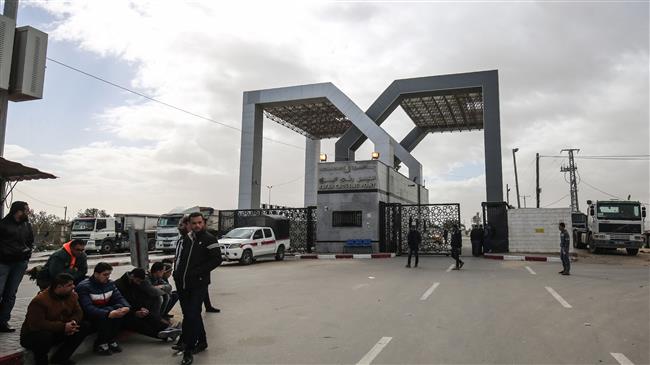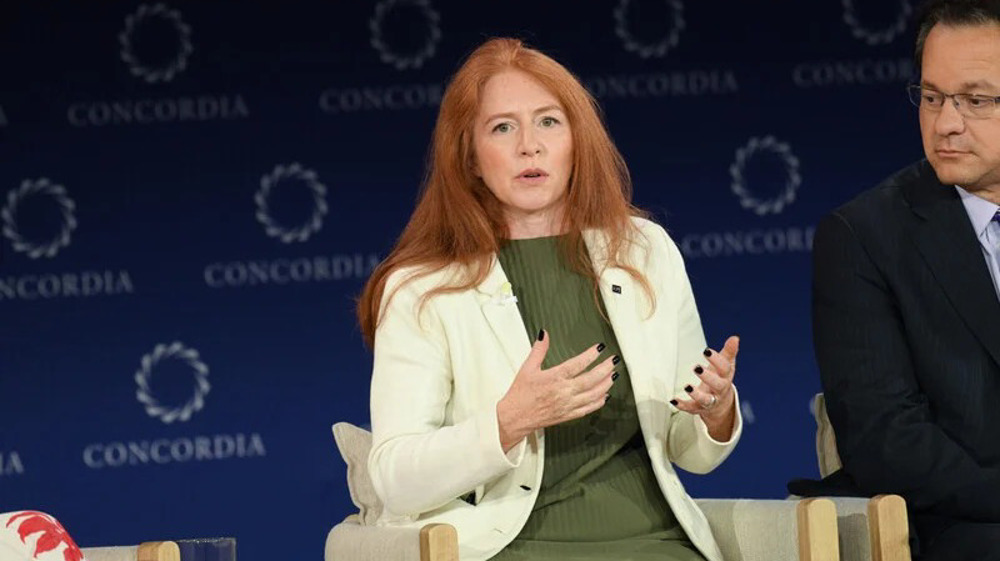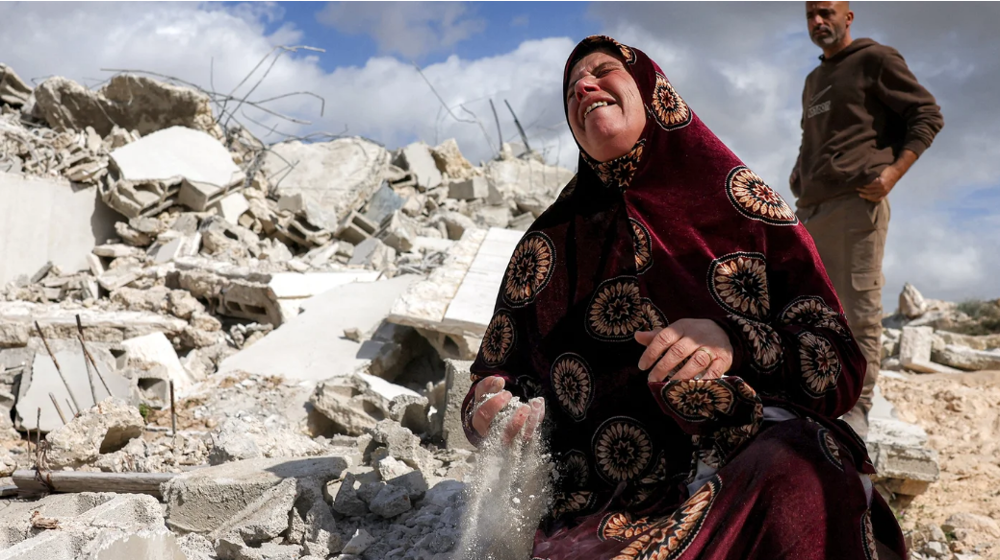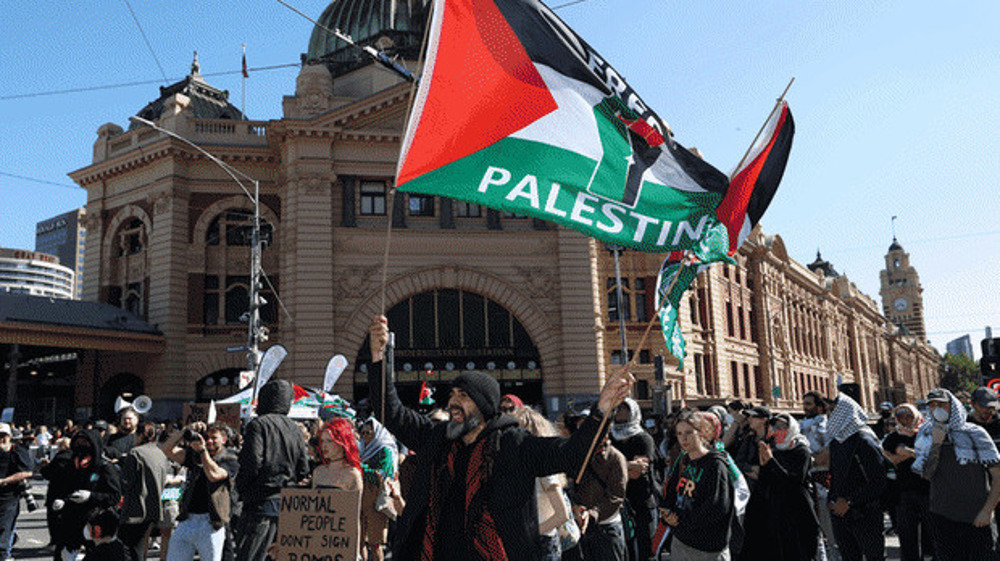Egypt limits crossing Rafah for Palestinians of Gaza, Hamas official says
Egypt has blocked Palestinians from entering the country from the Gaza Strip after Palestinian Authority personnel left the Rafah border crossing and officers from the Islamic resistance movement Hamas replaced them, Hamas officials say.
Wael Abu Omar, a spokesman for the Hamas-run authority in charge of the border crossing, said on Tuesday that Gazans seeking to return from Egypt would still be allowed through but no one would be able to leave the Palestinian enclave.
"For now, it is just for one day, it is not clear if it will be extended," the spokesman said.
The resistance movement says it took control of the crossing in a bid “to avoid a vacuum.”
Brigadier General Yehya Hammad, the Hamas-appointed director of the crossing, said his men had completed their deployment and were ready to operate the passage.
After they took up their posts, the body of a Palestinian who had died in the Egyptian capital, Cairo, and two women accompanying the coffin were allowed to enter Gaza. The women's passports were stamped by Hamas officers.

Gazan travelers hoped that the Egyptian side would open the crossing permanently.
"We hope the Egyptian side will open the crossing permanently as it did in the past to allow stranded patients, students, residents of third countries and humanitarian cases to travel," said Hammad, standing in the passport hall.
Upon arriving in Gaza, Hani Abu Sharekh, 48, said he hoped Egypt would soon resume full operation of the facility to allow passengers out of the coastal enclave. "There is no alternative to Rafah crossing, it is the only window for most of our people to travel and to seek treatment and education," Abu Sharekh said after returning from a trip to Cairo, where his wife had received medical treatment.
Human rights groups say Rafah, the only way for Gazans to leave the Palestinian enclave that bypasses Israel, has been the sole exit point from Gaza for an estimated 95 percent of its population of two million.
On Sunday, the Palestinian Authority, which is led by President Mahmoud Abbas, announced its pullout from Rafah, accusing Hamas of undermining its operations and detaining some of its workers. The authority had retaken control of the crossing in late 2017 as part of a reconciliation deal between Abbas' Fatah party and Hamas. The deal has since broken down and Abbas has taken a series of measures against Gaza.
Hamas said Abbas, who has imposed a series of economic sanctions on Gaza, was destroying the prospects for unity.
Israeli Prime Minister Benjamin Netanyahu has already said he would put his stamp on the Fatah-Hamas reconciliation deal only if Hamas recognizes Israel, cuts ties with Iran, and disbands its military wing, known as the Ezzedine al-Qassam Brigades, and its estimated 25,000 fighters, who have defended Gaza against three deadly Israeli wars over the past decade.
Israel has restricted the movement of Palestinians in and out of the Gaza Strip since the early 1990s. Restrictions intensified in June 2007, when Tel Aviv imposed a land, sea and air blockade on Gaza, citing security concerns.
Nearly two million Palestinians in Gaza remain locked in and are prevented from having free access to the remainder of Palestine and the outside world. The blockade has also undermined the living conditions in the coastal enclave and fragmented its economic and social fabric.
Iran elected vice-chair of UN Commission for Social Development
Historic gold for Iran as teen fencer wins World Cup title
VIDEO | Paris celebrates 47 years of Islamic Revolution in Iran
VIDEO | Killed twice: Palestinian-Americans and the price of silence
VIDEO | Pakistan slams US for publishing map depicting Kashmir as part of India
VIDEO | India-US trade deal faces protests from unions, opposition
VIDEO | 44th Fajr film festival closes with award ceremony in Tehran
North Korea warns of 'terrible response' to drone incursions from South











 This makes it easy to access the Press TV website
This makes it easy to access the Press TV website